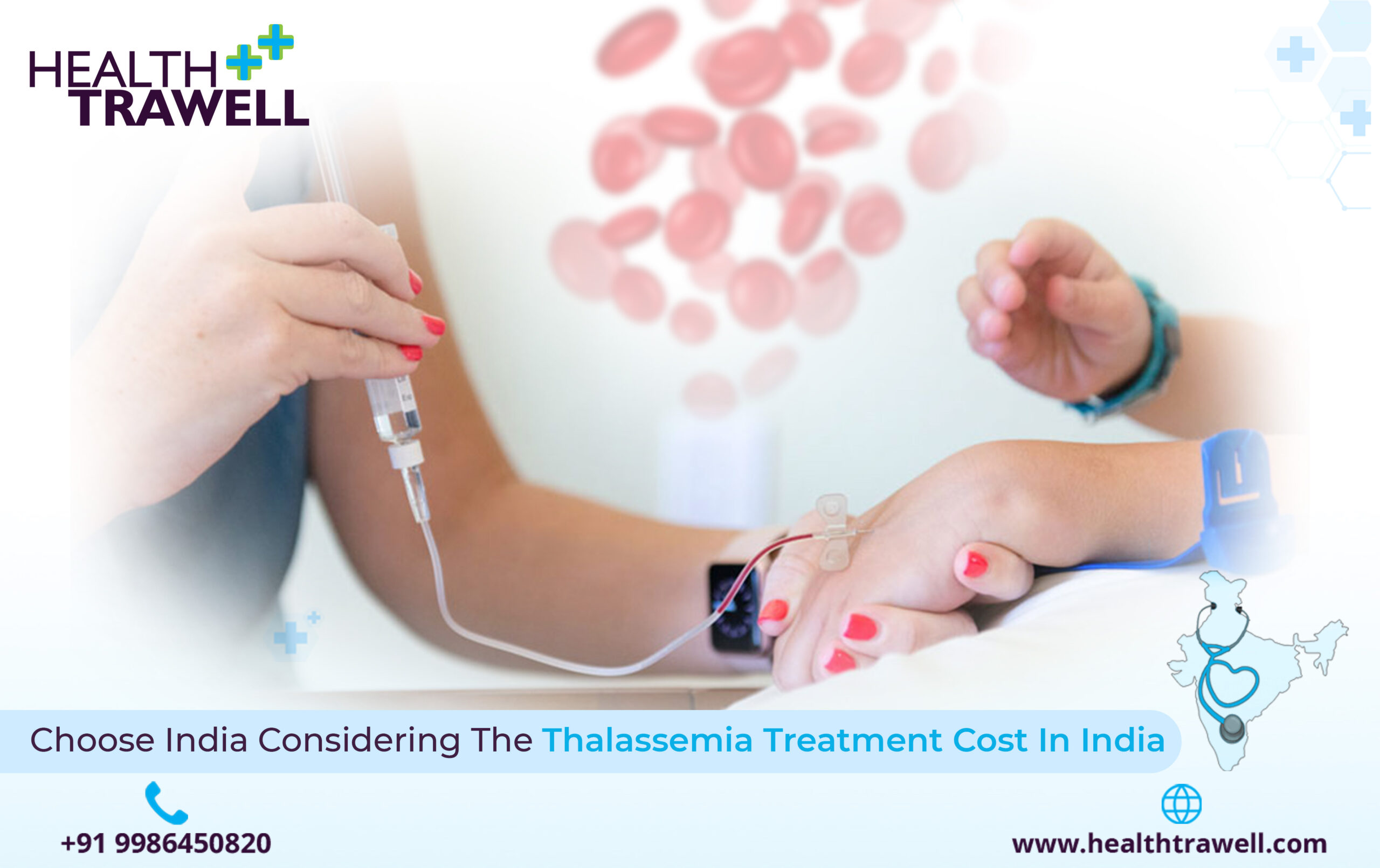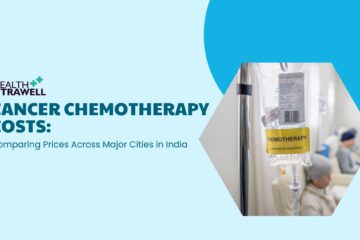Choose India Considering the Thalassemia Treatment Cost in India

Risk Factors Associated with Thalassemia
Thalassemia Treatment Cost in India
Thalassemia Treatment in India with Heath Trawell as Your Escort!
Thalassemia – Overview
Thalassemia happens to be a hereditary or genetic blood disorder affecting the haemoglobin production in the body. Haemoglobin is basically a protein that is responsible for carrying oxygen through the entire body. This condition results in the abnormal formation of red blood cells and can lead to anaemia. Thalassemia is more prevalent in certain regions, including the Mediterranean, Middle East, Africa, and Southeast Asia, but it can occur in individuals of any ethnicity. Let us look at the Thalassemia treatment cost in India as compared to other developed nations.
Symptoms of Thalassemia
The symptoms may vary as per the Thalassemia type as well as the severity of the patient’s condition. Mild cases may not present any noticeable symptoms, while severe cases can cause significant health issues. Common symptoms include the following:
- Fatigue & weakness
- Pale or yellowish skin
- Shortness of breath
- Delayed growth and development in children
- Facial bone deformities in severe cases
- Enlarged spleen & liver.
- Dark urine
Causes of Thalassemia
Thalassemia is caused by mutations in the genes that control the production of haemoglobin. These genetic abnormalities can be inherited from one or both parents. When both parents are carriers of thalassemia genes, there is a higher risk of having a child with thalassemia major, the most severe form of the condition. If only one parent carries the gene, the child may develop a milder form of thalassemia or become a carrier themselves.
Types of Thalassemia
There are 2 major types of thalassemia, each with different subtypes with varying degrees of severity, as follows:
- Alpha Thalassemia: This type occurs when there is a problem with the production of alpha globin chains. The subtypes include silent carrier, alpha thalassemia trait, haemoglobin H disease, and hydrops fetalis.
- Beta Thalassemia: In Beta thalassemia, there is a deficiency in the production of beta globin chains. The subtypes include thalassemia minor, thalassemia intermedia, and thalassemia major (also known as Cooley’s anaemia).
Risk Factors Associated with Thalassemia
Several factors increase the risk of developing thalassemia or having a child with thalassemia. These include the following:
- Family history of thalassemia or known carriers in the family.
- Being of Mediterranean, Middle Eastern, African, or Southeast Asian descent.
- Consanguineous marriages (marriages between close relatives).
- Prenatal testing indicates the presence of thalassemia genes.
Prevention of Thalassemia
While thalassemia is a genetic disorder that cannot be completely prevented, certain measures can help reduce the risk of having a child with thalassemia major, as follows:
- Genetic counselling: Couples planning to have children can undergo genetic counselling to assess their risk and understand the available options.
- Prenatal testing: If both parents are carriers, prenatal testing can help identify if the fetus has thalassemia major, allowing parents to make informed decisions about their pregnancy.
- Preimplantation genetic diagnosis: In vitro fertilization (IVF) with preimplantation genetic diagnosis allows for the selection of embryos without thalassemia genes before implantation.
Treatment of Thalassemia
The treatment of thalassemia aims to manage symptoms, prevent complications, and improve the quality of life for individuals living with the condition.
- Blood Transfusions: Regular blood transfusions are often required for individuals with moderate to severe thalassemia. These transfusions provide healthy red blood cells to replace the defective ones and alleviate anaemia. However, repeated blood transfusions can lead to an excess of iron in the body, which requires additional treatment.
- Iron Chelation Therapy: To manage the excess iron accumulated from blood transfusions, iron chelation therapy is used. Medications such as deferasirox, deferiprone, and deferoxamine help remove the excess iron from the body, reducing the risk of organ damage.
- Folic Acid Supplements: Folic acid supplements are commonly prescribed to individuals with thalassemia as they assist in red blood cell production and help maintain overall health.
- Bone Marrow Transplantation: A bone marrow transplant, also known as a stem cell transplant, is a potential curative treatment for thalassemia. It involves replacing the defective bone marrow cells with healthy ones from a compatible donor. Bone marrow transplantation is typically recommended for individuals with severe thalassemia, including thalassemia major. However, this procedure carries risks and requires finding a suitable donor.
- Supportive Care: Individuals with thalassemia may require additional supportive care to manage specific complications. This can include medication for infections, regular monitoring of organ function, and managing associated conditions such as heart problems or hormonal imbalances.
Thalassemia Treatment Cost in India
Thalassemia treatment cost in India is generally more affordable compared to many developed nations. However, it can vary depending on several factors, such as the type of treatment, hospital facilities, location, and the patient’s specific needs. It is important to note that these cost estimates are approximate and can vary widely. Additionally, health insurance coverage and government assistance programs may help alleviate the financial burden of Thalassemia treatment cost in India. In comparison, the cost of thalassemia treatment in developed nations like the United States, Canada, or European countries can be significantly higher, often reaching hundreds of thousands of dollars for bone marrow transplantation alone. Factors such as healthcare system differences, infrastructure costs, and medication pricing contribute to the variation in treatment costs among countries.
Thalassemia Treatment in India with Heath Trawell as Your Escort!
Considering the Thalassemia treatment cost in India, you can choose India as your medical travel destination for Thalassemia treatment, and get good assistance from the Health Trawell’s team, which is going to escort you here all through your stay in India.



